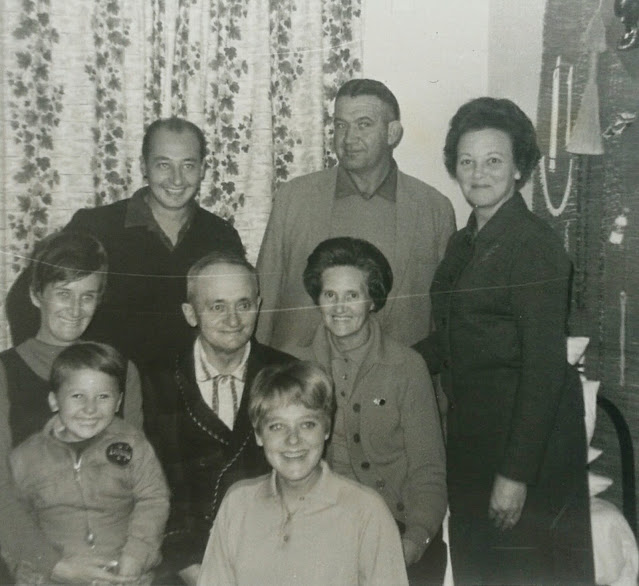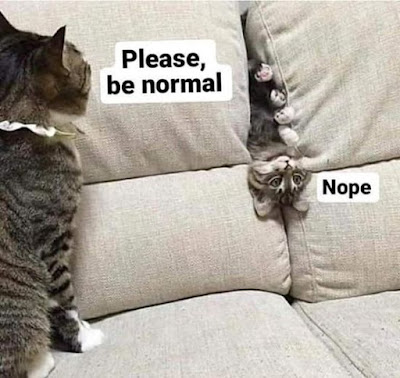Of Missing Fathers and Sisters Found
"Sometimes I write in self-defense" - Maya Angelou
The day before my birthday I was asked (again) why the search for my biological parents is so important to me; what I hoped to gain by knowing. I found my birth mother several decades ago. She gave birth to both the enquirer and I. I've given up on a relationship with "our" mother, but I would still like to find (out who) my father (was). I will therefore attempt to come up with a once-and-for-all answer on this page, if such a thing is possible. Because I think the answers change as one grows, but more about that later.
I suspect that, when she asked, my genetic half-sister was unaware of the significance of the following day. Not that I mind: I would prefer not to celebrate my birthday. I mark the day only because it seems important to others. This is in no way negative or sad, it's what I feel comfortable with. I don't much see the point of celebrating anybody's birthday after the age of 21. That's the last really significant age we strive to attain, isn't it? After coming of age, decadal commemoration seems more appropriate and only for those who insist that something changes between 39-and-11-months and "the big four-oh". Buurman, for instance, wants zero fuss made of his imminent 60th and that's fine with me. We celebrate each other every living day anyway.
"Why not?" I wanted to ask.
Why is the adoptee the one who has to justify their need to know? Why is the onus never on the secret-keepers to justify their muteness? Why is it not the societal norm that adoptees who don't want to find out about their birth parents are viewed as aberrant? In my opinion they're all in denial, hiding in religion or some other drug, or self-medicating in a culturally condoned way, like cigarettes or food. Because wanting to know where one comes from is the most natural thing in the world.
One of few and therefore excessively precious images left behind from my early childhood is a pre-school me loudly insisting to know where I came from at a gathering of family, friends and neighbours on our vast, green Karoo lawn. I was promptly told the story of the baby baboon my dad went to fetch in the veld and chopped off its tail and shaved its hair, and taught it to drink cow's milk from a bottle. The answer was entirely context-appropriate and kept me quiet for a while, although I didn't fail to notice the frisson of discomfort that passed through the grown-ups, and a mustard seed of unbelief was planted along with the tale. 'Issie!' I protested. 'Issie!'
More recently a psychologist I went to see about a different matter enquired why I didn't just take the view that my life didn't start at conception, but on the day I was adopted. It would probably be better for both my family of origin and my current/adopted family if I could bring myself to believe that crock of shit. It is ironic that the same self-announced religious psychologist, when it came to abortion rights, would faithfully contend that life started at conception.
By refusing to comply with the fairytale peddled by the church and its institutions (like the home for unwed mothers instrumental in my adoption) I do not wish to diminish the importance of my adopted parents and the role they continue to play in my life. I was formed by them and they live on inside me. Their place cannot be taken no matter how many blood relatives I find. It's not the same.
I don't know if I would have searched for my birth mother if my adopted parents hadn't both died by the time I was sixteen or if the identity of my father would have become important if I were not rejected by her a second and third time. Perhaps it's time to look at the things I do know, the reasons that are, to me, so self-evident I cannot see why they would have to be recounted, much less accounted for.
A Quest for Identity
I wonder if non-adoptees would even be able to understand what it feels like to literally not know where you come from. To look in the mirror and see a mystery. To know that you will never know. I know my language abilities are from my mother. Other than that, not much. In half a century of being in the world the need to know has not diminished. These are things natural children take for granted; only acquired offspring attach value to heredity. We value what we do not have.
The Need for Healing
When I first walked into my therapist's office for major depression and relationship difficulties I was convinced I had no noteworthy feelings about being adopted. In fact, just about ALL my feelings could be traced back there, with the exception of a few stray ones that were exacerbated by compound loss over the years. I know from experience that unburying your emotional truth heals. The therapeutic process, in the words of Jung, makes the darkness visible. We need to know who we are in order to find meaning in this life. To live with denial and avoidance of our own truth is the opposite of growth and healing. Family secrets fester. They're insidious and they often come out in the end.
The Psychology
Speaking of psychology, in my third year at UCT I was privileged to learn about Narrative and Trauma from Professor Pumla Gobodo-Madikizela (she is now at Stellenbosch). The reading material for this seminar became seminal to my understanding of the value of bearing witness; that healing lies in telling your story (narrative) to an empathic listener (reader). That you can make a story out of The Worst of Things (most of the reading came from studies of the Holocaust). And then it stops being The Worst. It is in the telling that the trauma is disempowered, that the fear and shame are released, the memories are healed. Of course it's not nearly as straightforward, but that's the gist of the therapeutic process.
The Choice
People have the choice to forego healing and rather continue to rely on their defence mechanisms (like "burying the past"). Not all of us get therapy, only the lucky ones. The rest have nervous breakdowns without ever investigating the root cause of their anxiety. They defuse the discomfort with medication or denial. They exist as half a person, like I did, oblivious to the repressed stranger inside. Therefore I no longer bother my birth mother. Her last rejection - the third - was brutal. I made a different choice: it is to learn the truth and finish my story with or without her. I may never be able to stop the dreadful yearning for her approval; I may never succeed in giving up hope entirely. These days I have a fledgling relationship with her other daughter, one of four half-siblings, which I cherish.
The Truth
Over the past three decades of intermittently communicating with my birth mother she told me two myths of origin. I believed each one in turn, yet neither of them were true. The very worst thing anyone can do to me is lie. From the baby baboon story to my adopted parents' assurances that they "fetched me from Cape Town" - I did not know this meant adopted and found out at school one day - to the official lie on file at the adoption organisation, to the latest refusal to share information, there have been too many lies.
For me it was really about moving past that stigma that other people put on it, other people's denial, and actually having agency over my own story- Lacey in the video below
The Secret
In case you're wondering, my birth mother knows she would remain anonymous if she told me. Any story I wrote would contain changed names, places and identifying characteristics. I invited her to come on this healing journey with me long ago. In fact I begged. Her response was that I was a secret she would take to her grave, i.e. she would rather die than acknowledge me. And so we find ourselves back at choices, I suppose.
If you have a family secret that is kept because of shame, because of fear, because of negative things, it still exists. It works on a subconscious level, and this makes it so difficult, and it makes it so dangerous, and it makes it so toxic
- Jennifer in the video below
Secrecy fosters distrust and completely fuels shame
- Lois in the same video
The Future
Fortunately for me, over the last three decades genetic DNA testing became accessible, even fashionable. My origin, if my suspicions are accurate, is of a kind that is possible to confirm with DNA testing. Technically I don't need my birth mother to tell me anymore. I could finish writing my story on my own.
I would not have examined what I hoped to gain by finding my biological parents if it were not for the second half of my sister's enquiry. It flows from the motivations explained above that I'm looking for a sense of completion. There's a hole in my history where my genetic father should be. To fill it even with a monstrous criminal is kinder than a sentence of eternal ignorance. For a cerebral person the latter really is hell on earth. [This is not the time to suggest I fill the lacuna with Jesus. Neither is any other time.]
Acceptance from my birth mother would be a reason to celebrate, but I'm no longer holding my breath. There is a point at which the withholding of truth goes from patronising to humiliating. Her secret and her fear tower sky-high between us. The day I realised it is not my shame to carry, not my fault, not my fear, I felt a profound sense of liberation from the burden I carried for most of my life, the burden she tried to pass onto me. It is her secret, not mine. I. Am. Not. A. Secret.
If you still think that I should stop asking "for my own protection", stop being so condescending watch the following video and be assured that I am aware of just how shocking it can get.
And
still, I believe that trauma brought into the light is better than
hidden shame, and truth is preferable to the torture of not knowing.
My story is all I have left.




